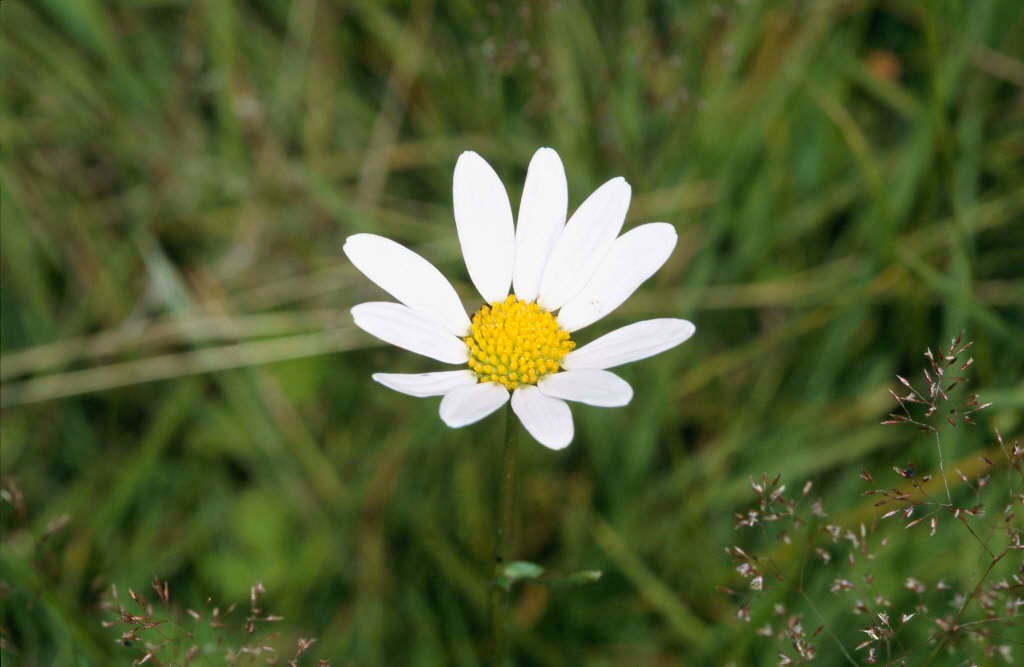Leucanthemum vulgare
ox-eye daisy
A rhizomatous perennial to 90cm tall, with clumps of dark green spoon-shaped basal leaves to 10cm long and shorter stem leaves. Solitary white, daisy-like flowerheads with yellow disk florets, are produced in late spring and early summer above the foliage
Other common names
big daisybull daisy
see moredog daisy
dun daisy
espibawn
field daisy
herb Margaret
horse daisy
horse gowan
large white gowan
love-me-not
mathes
maudlinwort
midsummer daisy
moon daisy
moon flower
moon penny
poor-land daisy
pretty maids
sheriff pink
white cap
white daisy
white goldes
white man's weed
white ox-eye
white weed
love-me
marguerite
llygad llo
Synonyms
Chrysanthemum leucanthemumSize
Ultimate height
0.5–1 metresTime to ultimate height
2–5 yearsUltimate spread
0.1–0.5 metresGrowing conditions
Moisture
Moist but well–drainedpH
Acid, Alkaline, NeutralColour & scent
| Stem | Flower | Foliage | Fruit | |
| Spring | White Yellow | Green | ||
|---|---|---|---|---|
| Summer | White Yellow | Green | ||
| Autumn | Green | |||
| Winter |
Position
- Full sun
- Partial shade
Aspect
South–facing or North–facing or West–facing or East–facing
Exposure
Exposed or Sheltered Hardiness
H7Botanical details
- Family
- Asteraceae
- Native to GB / Ireland
- Yes
- Foliage
- Deciduous
- Habit
- Clump forming
- Genus
Leucanthemum are robust herbaceous perennials with narrowly oblong leaves and daisy-like flower-heads with white rays
- Name status
Correct
- Plant range
- Europe, Asia
How to grow
Cultivation
Grow in moderately fertile, moist but well-drained soil in full sun or partial shade; plants may need support
Propagation
Propagate by seed or division
Suggested planting locations and garden types
- Cottage and informal garden
- Wildflower meadow
- Wildlife gardens
- Cut flowers
- Flower borders and beds
- Ground cover
Pruning
Deadhead regularly then cut stems down to the ground in winter
Pests
May be susceptible to aphids
Diseases
May be susceptible to a leaf spot
Get involved
The RHS is the UK’s gardening charity, helping people and plants to grow - nurturing a healthier, happier world, one person and one plant at a time.
